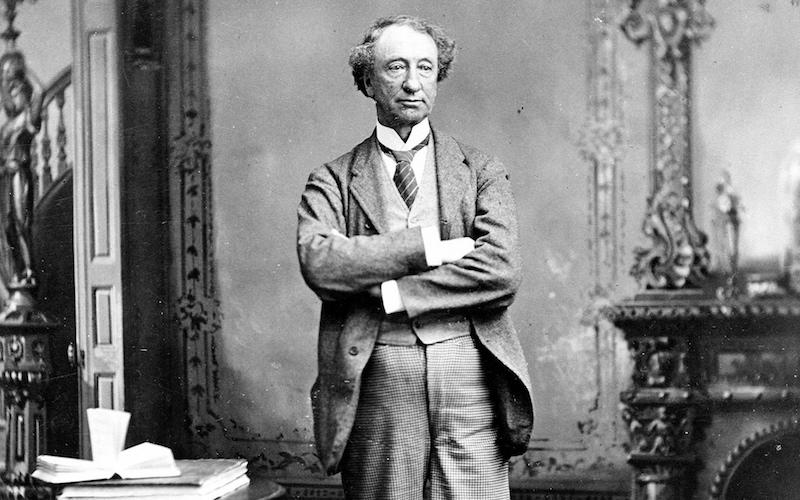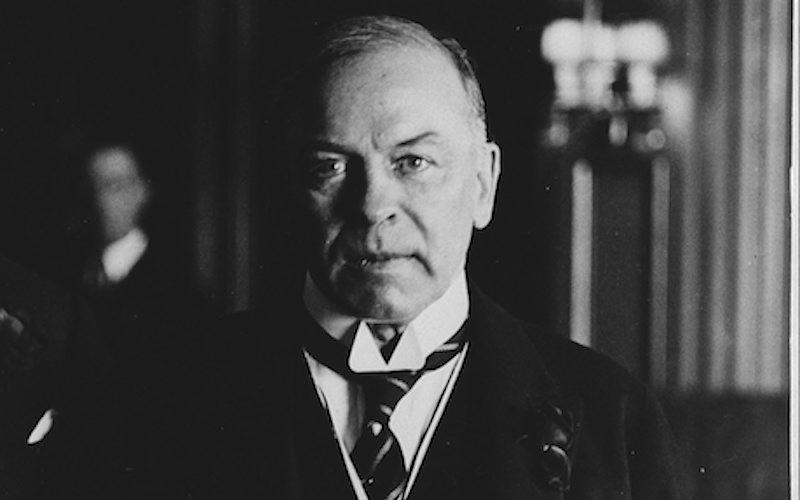The biggest political scandals in Canadian history

Canadian politics may seem tame to some, but certain scandals have historically become too big to ignore.
As our neighbours to the south cope with the fallout from the Russia probe, it’s difficult to pinpoint an investigation with so much at stake here in Canada.
The biggest Canadian political scandals have revolved around money. From campaign donations to spending programs, the lack of transparency when it comes to finances can land political figures in hot water.
Below is a list of some of the most memorable political scandals in Canada history, covering a period of nearly 150 years.
The Pacific Scandal

Canada’s first major scandal involved the country’s first prime minister, Sir John A. Macdonald. According to the Canadian Encyclopedia, the 1872 election campaign featured an accusation that the Conservative prime minister took election funds from Sir Hugh Allan in exchange for the contract to build the Canadian Pacific Railway.
More than $350,000 was provided by Allan, and in turn, the lucrative contract was awarded to his company.
The Liberals went public with news of the scandal in April 1873 and Macdonald’s government resigned later that year. A new contract for the railway project (which was promised to British Columbia as part of a Confederation deal) was issued in 1880. Years later, Macdonald would lead his party back to power and was elected prime minister once again.
The Beauharnois Scandal

This scandal came to light in the early 1930s when allegations surfaced claiming the Liberals received roughly $700,000 during the 1930 election in exchange for a favour. As the Canadian Encyclopedia details, that favour came from the Beauharnois Light, Heat and Power Company, which was seeking to divert the St. Lawrence River 30 kilometres west of Montreal in order to produce hydroelectricity.
The company’s director, R.O. Sweezey, said Liberal senators Wilfrid Laurier McDougald and Andrew Haydon were the recipients of the funds, but no direct link surfaced involving Liberal leader William Lyon Mackenzie King.
As a result, McDougald was forced to resign and Haydon was shown the door. Mackenzie King told Parliament that the scandal left his party in “the valley of humiliation.” But the scandal never really stuck with Mackenzie King’s Liberals, who won the next election in 1935 with a majority mandate and gave the former prime minister another opportunity to govern.
The Airbus Affair

The Airbus Affair centers around former prime minister Brian Mulroney’s alleged dealings with Karlheinz Schreiber, a German-Canadian arms lobbyist. It all started in July 1988 when Air Canada (then a Crown corporation) agreed to purchase 34 Airbus A320 planes in a $1.8-billion deal. The next year, the RCMP launched an investigation into the deal and ended it quickly.
Years later, in 1993, Mulroney accepted the first of three secret cash payments from Schreiber. In total, at least $225,000 in cash was paid to Mulroney by Schreiber, the former prime minister later admitted. According to Schreiber’s accountant, the money was part of an alleged kickbacks scheme to reward Mulroney for the Airbus deal, but none of this was ever proven.
The federal government ended up giving Mulroney $2.1-million settlement in 1997 after he sued for libel in relation to the RCMP probe. In 2007, a court ordered Mulroney to pay $470,000 to Schreiber after a lawsuit claimed the former prime minister didn’t provide services for the cash payments.
In May 2010, Justice Jeffrey Oliphant released a report where he called the dealings between Schreiber and Mulroney as “inappropriate.” Mulroney has maintained that he didn’t break any laws, and no charges were laid by the RCMP.
The Sponsorship Scandal

In the mid-1990s, a Liberal advertising campaign that followed the 1995 Quebec sovereignty referendum resulted in controversy. The goal was to promote federalism in Quebec through advertisements, but the government couldn’t account for money spent. By the early 2000s, then prime minister Jean Chrétien was facing questions about where the money went and he turned to federal auditor general Sheila Fraser to investigate the matter.
Fraser’s report was released on Feb. 10, 2004, where she alleged the Liberals abused the system by using up to $100 million on fees and commissions to communications agencies that was either misspent or unaccounted for. Public Works department officials were slammed in the report for allegedly breaking the rules and Alfonso Gagliano, who was the head of the ministry during the scandal, was fired from his post as ambassador to Denmark.
By the time the report was published, Chrétien had left office and the man who replaced him, Paul Martin, had to launch a public inquiry into the matter. Martin promised to call an election after Justice John Gomery’s inquiry was published. The opposition parties united to bring down the Liberals in a non-confidence vote, and Martin’s team lost the subsequent election.



